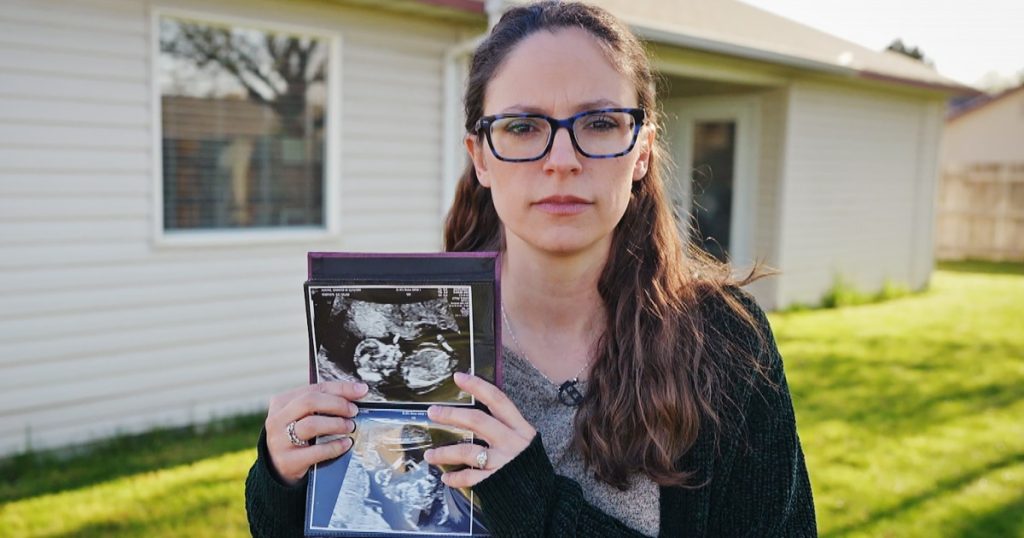Jennifer Adkins, a woman in Idaho, was twelve weeks pregnant with her second child when she learned that her developing fetus had Turner syndrome, a rare chromosomal abnormality that was unlikely to survive. Doctors also warned her that she was at high risk of Mirror Syndrome, a condition where the pregnant mother develops symptoms that mimic those of the deteriorating fetus. Despite these challenges, terminating the pregnancy was not an option because the fetus still had a heartbeat, and Idaho has banned nearly all abortions with strict penalties for those who perform them. There is an exemption if the procedure is necessary to prevent the death of the woman, but doctors in Idaho face confusion about what to do in cases where the fetus is not viable and could cause serious complications but the woman is not on the brink of death.
The U.S. Supreme Court is now considering a lawsuit challenging Idaho’s abortion ban, which conflicts with a federal law requiring hospitals to provide necessary treatment, including abortions, in emergencies. The lawsuit, brought by Jennifer Adkins and others, aims to clarify the scope of the state’s abortion ban, as doctors find themselves in difficult situations where they cannot act until a woman’s life is at immediate risk. In Adkins’ case, waiting to miscarry naturally could have taken weeks, so she and her husband traveled to Oregon for an abortion due to the restrictive laws in Idaho. Idaho’s Attorney General stated that the state law protects unborn children and the life of the mother, and abortion is allowed only when the mother’s life is in danger. However, many doctors in Idaho do not understand where the line is when it comes to providing abortion care in cases like these.
Healthcare professionals in Idaho are facing challenges due to the severe abortion restrictions, losing 22% of OB-GYNs in the 15 months after the ban went into effect. This has led to difficulties in access to prenatal care and delivery services, with some patients having to drive long distances for appointments. The restrictive laws are also causing frustration among doctors who feel that their hands are tied by state legislature that lacks understanding of the clinical complexities involved in these situations. The restrictive abortion laws are causing unnecessary trauma and harm to women facing medical complications in pregnancy, as they are forced to wait until they are in a life-threatening condition before they can receive necessary care.
Despite the challenges and uncertainties created by Idaho’s strict abortion ban, some healthcare providers like Dr. Duncan Harmon have chosen to stay and continue serving their patients. However, the impact of the law is felt across the state, with doctors like Dr. Sara Thomson updating their resumes for the first time in years due to the difficult working conditions and constraints imposed by the legislation. For women like Jennifer Adkins, who is pregnant again in a state that she feels has failed her once, the future is uncertain and filled with fear. The lack of clarity and understanding around the state’s abortion ban is causing significant distress for expectant mothers, who are left feeling like they are walking on eggshells in navigating their reproductive healthcare in Idaho.


